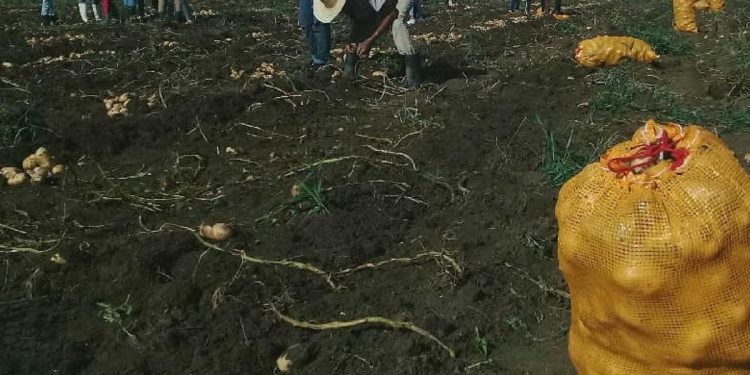#Agroecology #PotatoCultivation #SustainableAgriculture #CubanFarming #NationalSeedProduction #LocalFarmers #AgriculturalInnovation #Self-Sufficiency #SanctiSpíritus #AgricultureTrends
In recent news, Cuba is gearing up for the potato planting season, and Sancti Spíritus, situated in the heart of the island, is making notable strides in the country’s agroecological potato program for the third consecutive year.
The cultivation of agroecological potatoes is commencing this week, marking a return to the ideal planting period for Sancti Spíritus. In contrast to the past two years when planting occurred in January, this time, the region is not only aligning with the optimal timeframe but is also integrating national seed production and contributions from local farmers to cover the planned 34 hectares.
Eduardo Jiménez Calzada, Head of the Agricultural Department in the Provincial Delegation of Agriculture, highlighted the previous experiences of cultivating agroecological potatoes with minimal input coverage, relying on imported seeds. However, this year, the focus is shifting to areas under mechanical irrigation in other provinces, accompanied by a technological package to enhance performance. Sancti Spíritus’ plantation is set to utilize both nationally produced seeds and a portion stored within the territory.
Jiménez Calzada explained the decision to advance the potato planting to November, an ideal period that would lead to harvesting at the beginning of the new year. The 30-hectare plantation (compared to the initial 8 and subsequent 20 hectares) includes an additional 4 hectares with seeds produced by local farmers, marking an unprecedented experience in the region.
The agroecological potato initiative now involves 12 more producers, encompassing all municipalities in Sancti Spíritus except Trinidad, where suitable areas and producers were not found due to the risk of losing expensive seeds.
As per the country’s directive, the produced agroecological potatoes are earmarked for self-sufficiency in the municipalities of production. Jiménez Calzada emphasized that the local potato production does not impact the national balance, with other provinces focusing on areas responding to the country’s commercial demands.
Sancti Spíritus’ commitment to agroecological potato cultivation reflects a strategic shift towards sustainable and locally driven agricultural practices. The integration of national seed production and collaboration with local farmers not only ensures self-sufficiency but also sets a precedent for other regions. This initiative highlights the importance of adapting cultivation strategies to local conditions and fostering a resilient, community-oriented approach to agriculture.







